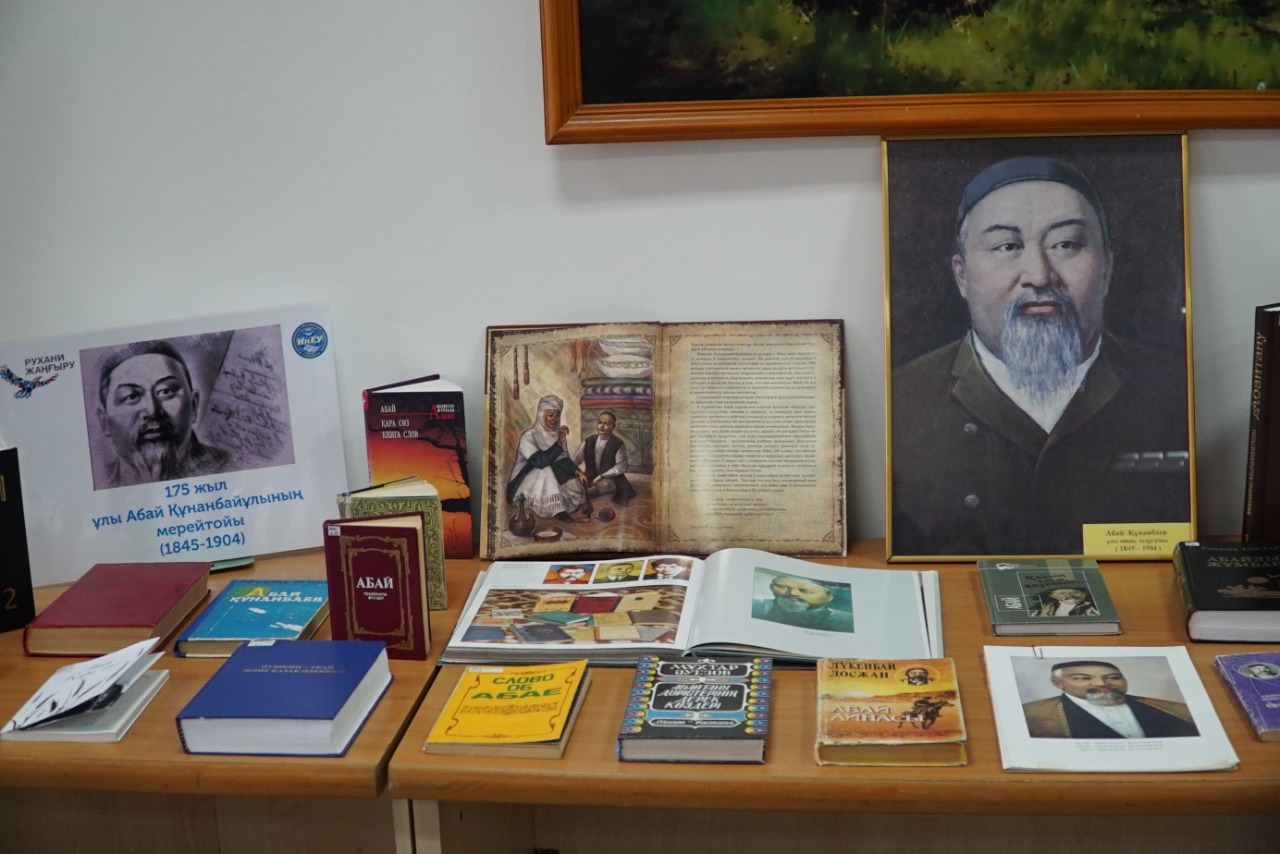Creative evening to the 175th anniversary of Abay Kunanbaev

A creative evening dedicated to the 175th anniversary of Abay Kunanbaev was held at the scientific library of Innovative University of Eurasia.
The meeting was organized by the Foundation faculty and employees of the InEU scientific library. Students were shown a short film about the life of the poet, his biography.
Abay Kunanbaev was born in the Chingiz foothills of the Chingiz volost, the Semipalatinsk district of the West Siberian governorate general (since 1845, the Semipalatinsk region) (according to the current administrative division in the Abay district of the East Kazakhstan region) in a family of a large Kunanbai Oskenbaev family (Tuskenbaev) Argyn tribe. The Abai family belonged to the local nobility; grandfather (Oskenbay) and great-grandfather (Irgizbay) dominated in their family as rulers and biys.
The home-teaching at the mullah begun in childhood was continued at the madrassah of the mullah Akhmet-Riza in Semipalatinsk, where Arabic, Persian, and other Oriental languages were taught. At the same time attended a Russian school. Toward the end of his five-year studies, he began to write poetry, first attributing their authorship to his friend Kokpay Dzhantasov. From the age of 13, father Kunanbay began to accustom Abai to the activities of the head of the clan. At the age of 28, Abay left her, completely engaged in self-education, but only by the age of 40 he created his first adult poems. A significant event for Abay was his communication with political exiles Eugene Michaelis, Nifont Dolgopolov, Severin Gross.
The formation of Abay's worldview was influenced by poets and scholars of the East, who adhered to humanistic ideas (Firdousi, Alisher Navoi, Nizami, Fizuli, Ibn Sina and others), as well as works of Russian classics, and through them European literature in general. He translated Krylov, Lermontov, Pushkin, Goethe and Byron.
After the film, touching verses and songs of Abai were performed by students, and tears came to his eyes from the guests of the evening.
Such meetings form in students patriotism and love for the homeland and their national traditions. We thank the faculty "Foundation" and the scientific library of InEU for the event!
Ongar Nurakhmetov
Specialist of the publishing department of InEU







